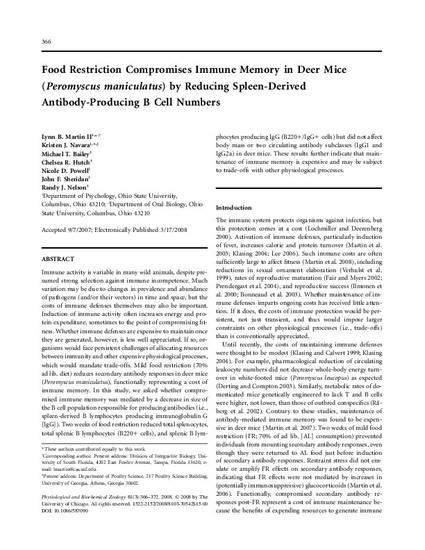
Immune activity is variable in many wild animals, despite presumed strong selection against immune incompetence. Much variation may be due to changes in prevalence and abundance of pathogens (and/or their vectors) in time and space, but the costs of immune defenses themselves may also be important. Induction of immune activity often increases energy and protein expenditure, sometimes to the point of compromising fitness. Whether immune defenses are expensive to maintain once they are generated, however, is less well appreciated. If so, organisms would face persistent challenges of allocating resources between immunity and other expensive physiological processes, which would mandate trade-offs. Mild food restriction (70% ad lib. diet) reduces secondary antibody responses in deer mice (Peromyscus maniculatus), functionally representing a cost of immune memory. In this study, we asked whether compromised immune memory was mediated by a decrease in size of the B cell population responsible for producing antibodies (i.e., spleen-derived B lymphocytes producing immunoglobulin G [IgG]). Two weeks of food restriction reduced total splenocytes, total splenic B lymphocytes (B220+ cells), and splenic B lymphocytes producing IgG (B220+/IgG+ cells) but did not affect body mass or two circulating antibody subclasses (IgG1 and IgG2a) in deer mice. These results further indicate that maintenance of immune memory is expensive and may be subject to trade-offs with other physiological processes.
Physiological and Biochemical Zoology, v. 81, no. 3, p. 366-372.
© 2008 by The University of Chicago.
Available at: http://works.bepress.com/lynn_martin/1/
